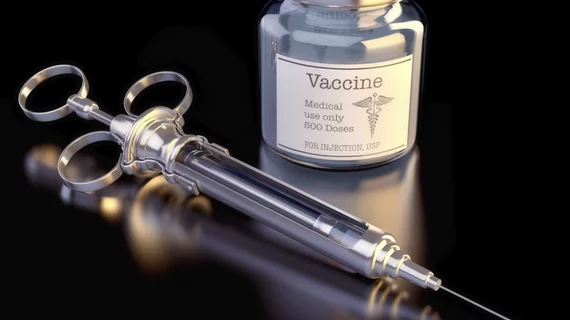Coronavirus vaccine trial begins
Scientists from the National Institute of Allergy and Infectious Diseases (NIAID) at the National Institutes of Health have begun a Phase 1 clinical trial for a vaccine to protect against the new coronavirus, COVID-19.
The vaccine trial, which was announced March 16, comes at a time when the number of COVID–19 cases in the U.S. has risen to more than 7,000, with nearly 100 deaths, according to the CDC’s update on March 18.
The trial is taking place at Kaiser Permanente Washington Health Research Institute in Seattle, with 45 healthy adult volunteers between the ages of 18 and 55 enrolling over six weeks. The first participant in the trial received the vaccine, called mRNA-1273, March 16. The clinical trial will include multiple steps.
The study will evaluate different doses of the experimental vaccine for safety and efficacy, according to HHS. Participants will receive two doses of the vaccine 28 days apart, with each participant assigned either a dose of 25 micrograms, 100 mcg or 250 mcg at both vaccinations. Fifteen people will receive each dosage, with the first four participants receiving one injection of the low dose and the next four receiving the 100 mcg dose.
“NIH and its partners have launched the first COVID-19 vaccine trial anywhere in the world, in record-breaking time,” HHS Secretary Alex Azar said in a statement. “When the world faces a new public health threat, so often, American scientists and entrepreneurs have been the first to start uncovering ways to fight back.”
The vaccine was created by scientists from NIAID and other collaborators at Moderna, a biotechnology company based in Cambridge, Massachusetts. The vaccine, which uses the genetic platform mRNA, directs the body’s cells to elicit a strong immune response by expressing a virus protein. The vaccine has already showed “promise in animal models,” according to NIAID.
“Finding a safe and effective vaccine to prevent infection with SARS-CoV-2 is an urgent public health priority,” NIAID Director Anthony S. Fauci, MD, said in a statement. “This Phase 1 study, launched in record speed, is an important first step toward achieving that goal.”
NIAID scientists from the organization’s Vaccine Research Center relied on prior studies of other coronaviruses, including SARS and MERS, to develop the experimental vaccine.
Participants in the vaccine trial will return to the clinic for follow-up visits between the two vaccination doses and additional visits over one year after the second dose. They will also provide blood samples to be lab tested for the immune response.
“This work is critical to national efforts to respond to the threat of this emerging virus,” Lisa A. Jackson, MD, senior investigator at KPWHRI, who is leading the Phase 1 trial, said in a statement. “We are prepared to conduct this important trial because of our experience as an NIH clinical trials center since 2007.”

